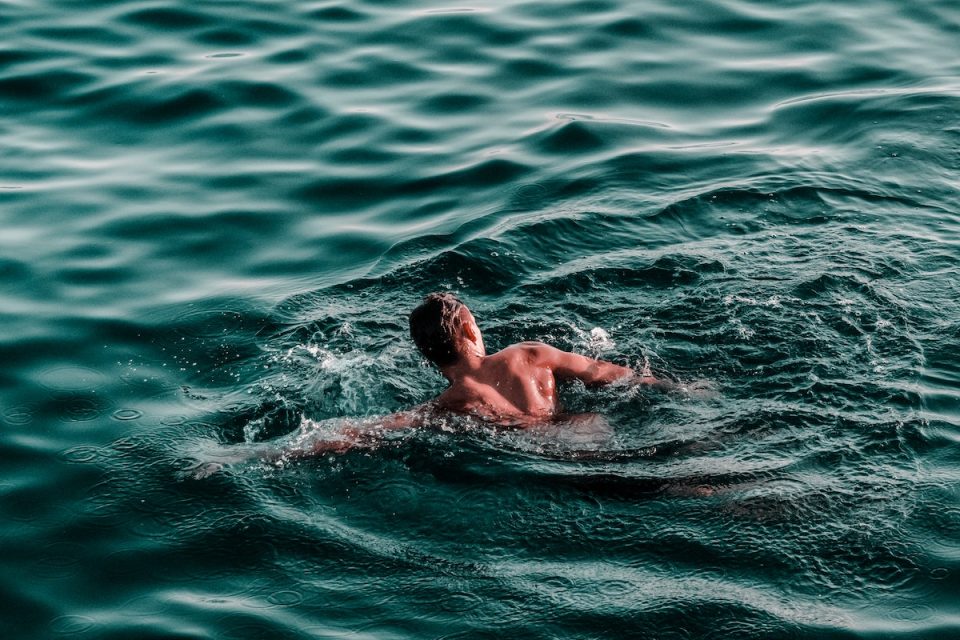This week’s Thrive In Five is All About Cold Water Immersion part of our preventative health series
Thrive in Five is a tip we can share with you in under five minutes, that you can adopt in under five minutes. This week our health coach Liz is talking about preventative health strategies, focusing on cold water immersion and its many and varied health benefits.
Cold water immersion has definitely become more trendy, more popular and more well known and there’s a good reason for this. Its popularity comes from its many health benefits, and today we’re focusing on those that relate to preventative health.
Cold water immersion how it works
Cold water immersion causes a very fast drop in temperature (it’s a bit of a shock to the system). Mentally, it puts you immediately into the moment and brings you into your body.
Physically one of the ways it helps your health is with the fast drop in temperature causes vasoconstriction. Blood rushes to the vital organs in the body. So even though it feels quite shocking and uncomfortable on the outside, you’re getting increased circulation to your vital organs.
Health benefits of cold water immersion
It is said to be helpful for:
- lowering stress levels
- creating more mental toughness and resilience
- increasing your immune system
- boosting your circulation
- improving sleep
- feeling calmer
- positively affecting your parasympathetic nervous system
- increasing your metabolic function
- improving mood
- decreasing doms (delayed onset muscle soreness)
Resilience and immunity
Two major buzz words for 2020/2021, resilience and immunity, in a post-lockdown environment everybody’s wanting to become more courageous and build up their confidence again. Taking on a new preventative health strategy such as cold water immersion has a great impact on our immune system. Making it feel a little easier to reintegrate back into society, feeling more confident about the “new normal”.
DOMs (delayed onset muscle soreness) and recovery
If, like us, you love exercise cold water immersion can really help to decrease doms, which is your delayed onset muscle soreness caused by some vigorous activity. So if you go to the gym, play sports or work out at home and have a bit of stiffness, or soreness. Perhaps you’re going back to the gym after an absence due to lockdown, and you’re feeling a bit of sore and struggling with how to deal with it, cold water is your friend!
If you look at the rugby players and sports professionals who really push hard, they’ll always jump into an ice bath afterwards. So get yourself some ice, go for a cold swim. A bath with Epsom salts is really good, so give that a try too.
Cold water immersion positively affects your parasympathetic nervous system, which is the one that increases recovery. It increases your metabolic function helping you rest and digest more easily.
Just for fun
It can just be fun as well, honestly, it really can! There are cold water swimming groups across the country, and once you get over the initial shock of the cold it can be a nice time to chat with your friends – you’ll feel more relaxed.
Cold water immersion for mental health
It has been shown to improve your mood, I definitely started to notice. It has got strong links with mental health benefits as well.
Mike Tipton, a researcher at the University of Portsmouth, has been studying what these extreme experiences can do to the human body and mind.
“The body is responding with all the stress hormones…you’ll see changes in all of the fight-or-flight biochemical and hormonal responses. It’s raising your heart rate, your ventilation. That’s the thing that makes people say: ‘I feel alive, I feel alert, it wakes me up for the rest of the day.’”
Mike Tipton
Mike Tipton’s study on cold-water swimming found it
“led to an immediate improvement in mood following each swim and a sustained and gradual reduction in symptoms of depression, and consequently a reduction in, and then cessation of, medication. On follow-up a year later, she remains medication-free.”
Mike Tipton
How to get started with cold water immersion
Not everyone lives near to the sea or to a pool, for many these may also not be accessible for other reasons. So how do you get started?
A great way to start is with a cold shower or bath. A top tip is to have your normal shower, then at the end just slowly, turn it a bit colder. This way you have control, it’s a little less shocking and you can start building your resilience that way. In a bath, you can have your bath as normal, and as you drain the water just hose yourself down with the shower head on cold.
Even just a cold splash of water to the face will work as a starting point – just start playing with it and seeing how it feels.
Mental prep
I find that really I have to spend 10 minutes on the side of the pool if I go, psyching myself up, and then once I’m in, I’m determined to do it. It is quite brutal for the first few seconds, but it does get better.
Recommended temperature and time
If you’re thinking about going cold water swimming, you want to look at a pool that’s under about 15 degrees. The general rule is that you should stay in the water for as many minutes as it is cold. So for instance, I went yesterday, the pool was 14 degrees, so it’s recommended I stay for 14 minutes. I don’t think I quite made that though so do what you feel comfortable with and build up slowly.
It takes a bit of time to get warm afterwards, but do not turn the hot shower on straight away, just let yourself ease into feeling warm afterwards.
Post Swim high
It does feel great in your body once you come out. This is known as the ‘postswim high’ triggered by the release of beta-endorphins.
Let us know how you go, send us photos if you do decide to jump into the ocean or jump into a pool, we’d love to see, and good luck.
Take our Wellbeing at Work Scorecard and find out how your business measures up in four key areas of wellbeing:
Wellbeing Strategy & Aspirations
Wellbeing Resources & Training
Energy & Motivation
Leadership & Values
Plus you can find out what your Health IQ is and get a free personalised 39-page report. Built around our six signals, which are sleep, mental health, energy, body composition, digestion, and fitness.


